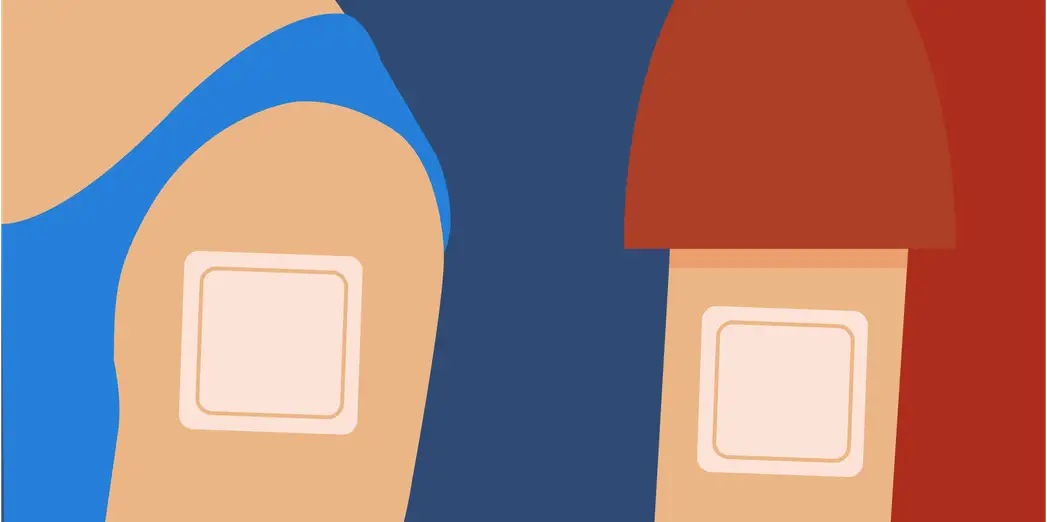Once upon a time, smoking tobacco was widely promoted as good for both health and relaxation. It’s surprising how times change!
These days, it’s well established that smoking tobacco isn’t the healthiest choice you can make. For instance, if you smoke, you have an increased risk of:
- developing a variety of cancers
- suffering a heart attack or stroke
- worsened symptoms from respiratory infections (e.g. common cold, flu, COVID-19)1.
It’s not just the smoker’s health that’s affected. People exposed to second-hand smoke are at increased risk of lung cancer and children exposed to second-hand smoke are at increased risk of developing meningitis and suffering from cot death.
Clearly, these health implications are not to be taken lightly.
There is another, less widely known, effect of smoking on health too – the effect of smoking on sleep.
We’ve covered the importance of sleep in numerous articles and focused on why getting a good night’s sleep is key to (but not limited to):
- weight control
- mood improvement
- physical strength
- mental performance
Over time, a lack of sleep will harm your quality of life.
In this article, we look more closely at the effect of smoking tobacco and its psychoactive component — nicotine — on sleep.
We’ll also take a quick look at what to expect when quitting smoking and cutting out nicotine altogether.
Why does smoking impact our sleep?
Smoking tobacco is incredibly addictive. This is mostly due to the presence of nicotine (a stimulant) in tobacco products. Once in the body, nicotine stimulates the release of several neurotransmitters or chemical messengers2.
Release of these neurotransmitters (e.g. serotonin, dopamine and gamma-aminobutryic acid) can be associated with pleasurable feelings and a sense of wellbeing. However, fluctuations in these neurotransmitter levels can also affect a person’s sleep-wake cycle.
So we know that smoking is associated with nicotine and that nicotine affects sleep. Let’s find out how.

Smoking and sleep disturbance: the good and the bad
If you’re a regular smoker, you’re more likely to:
- take longer to fall asleep once in bed 2
- spend a greater amount of time in bed awake, rather than asleep
- sleep for less time overall
- spend less time in deep, restorative sleep3.
These effects aren’t universal and, in fact, some people (e.g. those living with depression) will experience sleep improvement following nicotine consumption4.
But a number of respiratory problems that affect sleep, like asthma and sleep apnoea, are exacerbated by smoking.
Consequently, smokers and other nicotine users often report difficulty getting up in the morning and experience increased daytime sleepiness2 5. But it gets worse! Smoking is well known for causing lung cancer but another risk factor is reduced sleep6.
It’s also been suggested that, because of the timing of people’s nicotine intake compared to other stimulants, the impact of nicotine on sleep may be more marked than in a number of other stimulants – including cocaine7.
And that’s not all! The longer you’ve been smoking for, the more likely you are to develop insomnia or insomnia-like symptoms. Habitual smokers who started smoking in adolescence appear to be more at risk of developing insomnia than those who started later in life8 or those who smoke infrequently.
Surprisingly, second-hand smoke also affects sleep. Passive smokers are more likely to report poor sleep than those not exposed to any form of tobacco smoke9 10.

How can nicotine replacement therapy affect sleep?
Although not as damaging to your health as smoking tobacco, nicotine in any form can disrupt your sleep. E-cigarettes (vapes), patches and nicotine gum are a safer alternative to cigarettes but they’re still likely to spoil your sleep. Nicotine is a nightmare when it comes to restful nights.
E-cigarette users often complain of the same sleep issues affecting conventional cigarette smokers. They also report night-time breathing issues, both of these being observed in daily and non-daily users of e-cigarettes11. Sleep disturbances are also reported by users of patches and gum 4.
So, if smoking and more general nicotine consumption are bad for sleep, it’s perfectly natural to ask: Just what does someone who’s trying to quit smoking do?
Managing nicotine withdrawal: quitting smoking without going cold turkey on sleep
Let’s be frank. If nicotine consumption is bad for sleep and smoking is harmful to health in general, it’s a good idea to quit both. But they’re also remarkably addictive and come with some very unpleasant withdrawal symptoms. These include12:
- Poor mood
- Fear
- Irritability
- Restlessness
There’s also another one: Sleep disturbance (this can include sleeping too much as well as too little).
At this point, if you’re trying to quit, it sounds like you’d be in for a hard time with sleep and maybe that cutting down your nicotine consumption simply isn’t worth the trouble. This is not the case, but it is a good idea to know what’s likely to happen if you’re trying to quit, and to plan accordingly.
First things first. If you’ve been smoking for a long time then you’re likely to suffer worse withdrawal symptoms. You might find that you’re more sleepy than usual when trying to quit4 but this should subside after a few weeks. You may also find that you’re able to fall asleep more easily, and sleep for longer once in bed.
Nicotine replacement therapy can help regulate some of the changes you’ll experience but the literature suggests that how you use it dictates what impact it’ll have on your sleep. For example, if you’re a heavy smoker using a 16-hour patch, you may experience nicotine withdrawal during the night, leading to undesired waking. This may be helped by using a 24-hour patch4 or by changing the time you put the patch on.
Patches may also increase the amount of restorative sleep you get per night as your body withdraws from nicotine12.
Exercise has also been shown to improve sleep during nicotine withdrawal. It doesn’t need to be anything too strenuous. Simply walking on a treadmill or using an exercise bike is a good start 13.
Finally, some work has shown that CBTi delivered by trained staff, from a reputable service such as Sleepstation, may help improve your sleep when trying to quit smoking. Quitting smoking and cutting out nicotine is never easy 14. It can be pretty daunting when you’re trying to do both. But using established approaches such as sleep restriction, sleep hygiene, thought blocking and relaxation can help.
In summary
- All forms of nicotine consumption are bad for sleep
- Smoking can make respiratory issues that affect sleep worse
- The best thing to do is stop using any form of nicotine, but this can be hard
- Exercise, nicotine patches and CBTi may be able to help if you’re keen to quit smoking and cut out nicotine
If you’re having a hard time quitting smoking, and are finding that you’re losing sleep over it, the Sleepstation team may be able to help. We’ve helped many thousands of people from all walks of life realise their dream of better sleep.
References
- What Are the Health Risks of Smoking?; 26 Jun 2018, 2:22 p.m. nhs.uk/common-health-questions/lifestyle/what-are-the-health-risks-of-smoking/) ↩︎
- Zhang L, Samet J, Caffo B, Punjabi NM. Cigarette Smoking and Nocturnal Sleep Architecture. American Journal of Epidemiology. 2006 Sep;164(6):529–537. ↩︎
- Cohen A, Colodner R, Masalha R, Haimov I. The Relationship Between Tobacco Smoking, Cortisol Secretion, and Sleep Continuity. Substance Use & Misuse. 2019 Aug;54(10):1705–1714. ↩︎
- Jaehne A, Loessl B, Bárkai Z, Riemann D, Hornyak M. Effects of Nicotine on Sleep during Consumption, Withdrawal and Replacement Therapy. Sleep Medicine Reviews. 2009 Oct;13(5):363–377. ↩︎
- Boakye D, Wyse CA, Morales-Celis CA, Biello SM, Bailey MES, Dare S, et al. Tobacco Exposure and Sleep Disturbance in 498 208 UK Biobank Participants. Journal of Public Health. 2018 Sep;40(3):517–526. ↩︎
- Luojus MK, Lehto SM, Tolmunen T, Erkkilä AT, Kauhanen J. Sleep Duration and Incidence of Lung Cancer in Ageing Men. BMC Public Health. 2014 Dec;14(1):295. ↩︎
- Caviness CM, Anderson BJ, Stein MD. Impact of Nicotine and Other Stimulants on Sleep in Young Adults:. Journal of Addiction Medicine. 2019;13(3):209–214. ↩︎
- Brook JS, Zhang C, Seltzer N, Brook DW. Insomnia in Adults: The Impact of Earlier Cigarette Smoking from Adolescence to Adulthood. Journal of addiction medicine. 2015;9(1):40–45. ↩︎
- Nakata A, Takahashi M, Haratani T, Ikeda T, Hojou M, Fujioka Y, et al. Association of Active and Passive Smoking with Sleep Disturbances and Short Sleep Duration among Japanese Working Population. International Journal of Behavioral Medicine. 2008 Jun;15(2):81–91. ↩︎
- Sabanayagam C, Shankar A. The Association between Active Smoking, Smokeless Tobacco, Second-Hand Smoke Exposure and Insufficient Sleep. Sleep Medicine. 2011 Jan;12(1):7–11. ↩︎
- Brett EI, Miller MB, Leavens ELS, Lopez SV, Wagener TL, Leffingwell TR. Electronic Cigarette Use and Sleep Health in Young Adults. Journal of Sleep Research. 2020 Jun;29(3). ↩︎
- Jaehne A, Unbehaun T, Feige B, Cohrs S, Rodenbeck A, Schütz AL, et al. Sleep Changes in Smokers before, during and 3 Months after Nicotine Withdrawal: Smoking and Sleep. Addiction Biology. 2015 Jul;20(4):747–755. ↩︎
- Purani H, Friedrichsen S, Allen AM. Sleep Quality in Cigarette Smokers: Associations with Smoking-Related Outcomes and Exercise. Addictive Behaviors. 2019 Mar;90:71–76. ↩︎
- Fucito LM, Redeker NS, Ball SA, Toll BA, Ikomi JT, Carroll KM. Integrating a Behavioural Sleep Intervention into Smoking Cessation Treatment for Smokers with Insomnia: A Randomised Pilot Study. Journal of Smoking Cessation. 2014 Jun;9(1):31–38. ↩︎